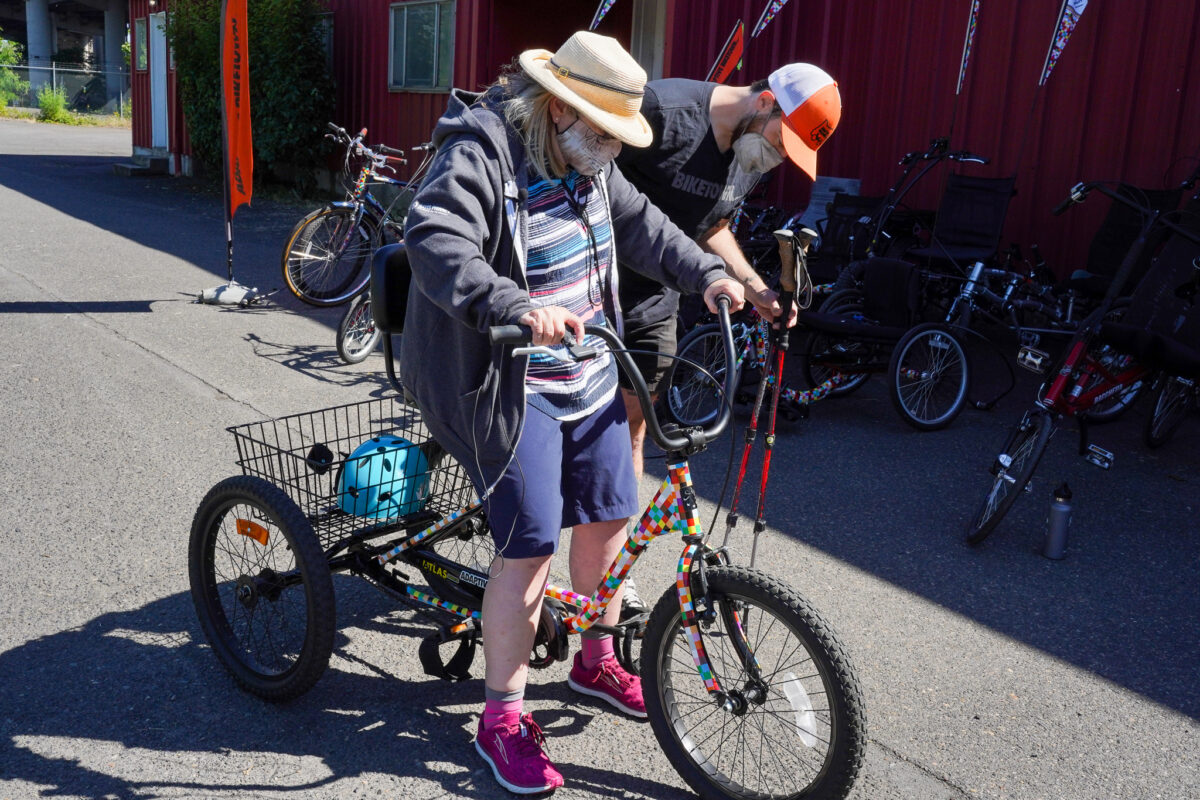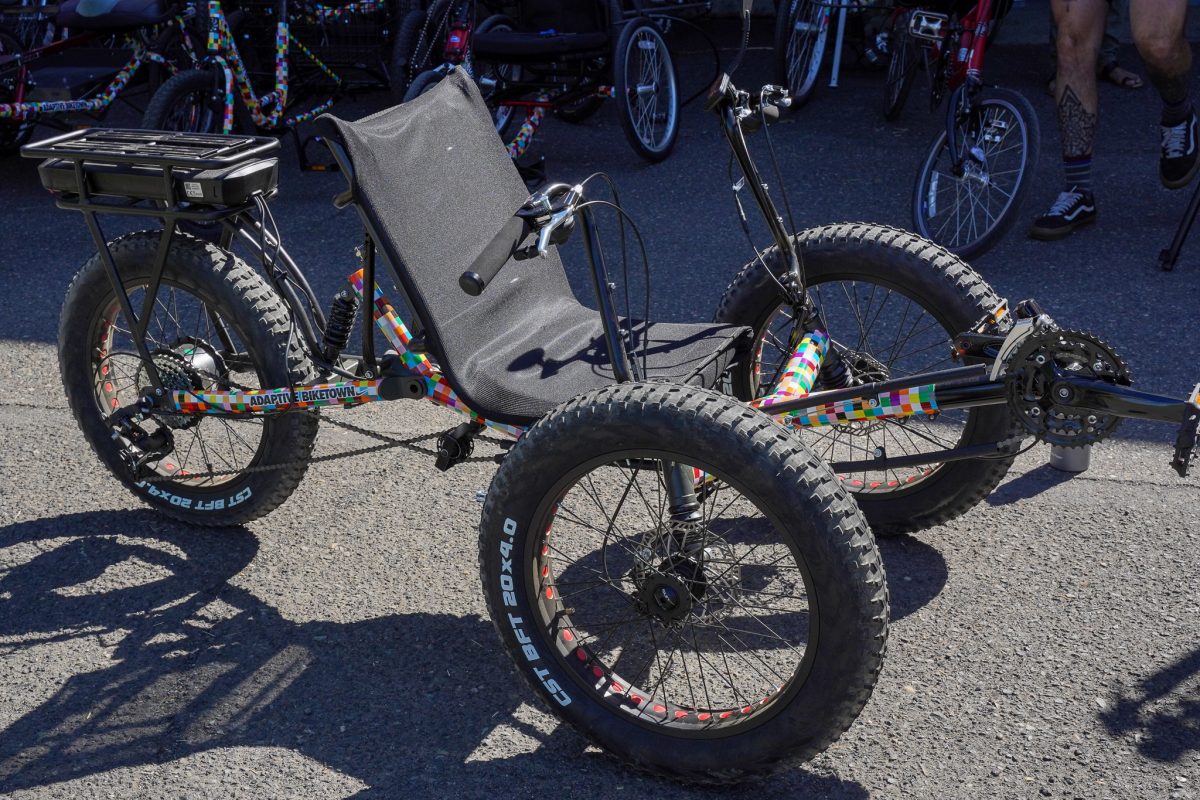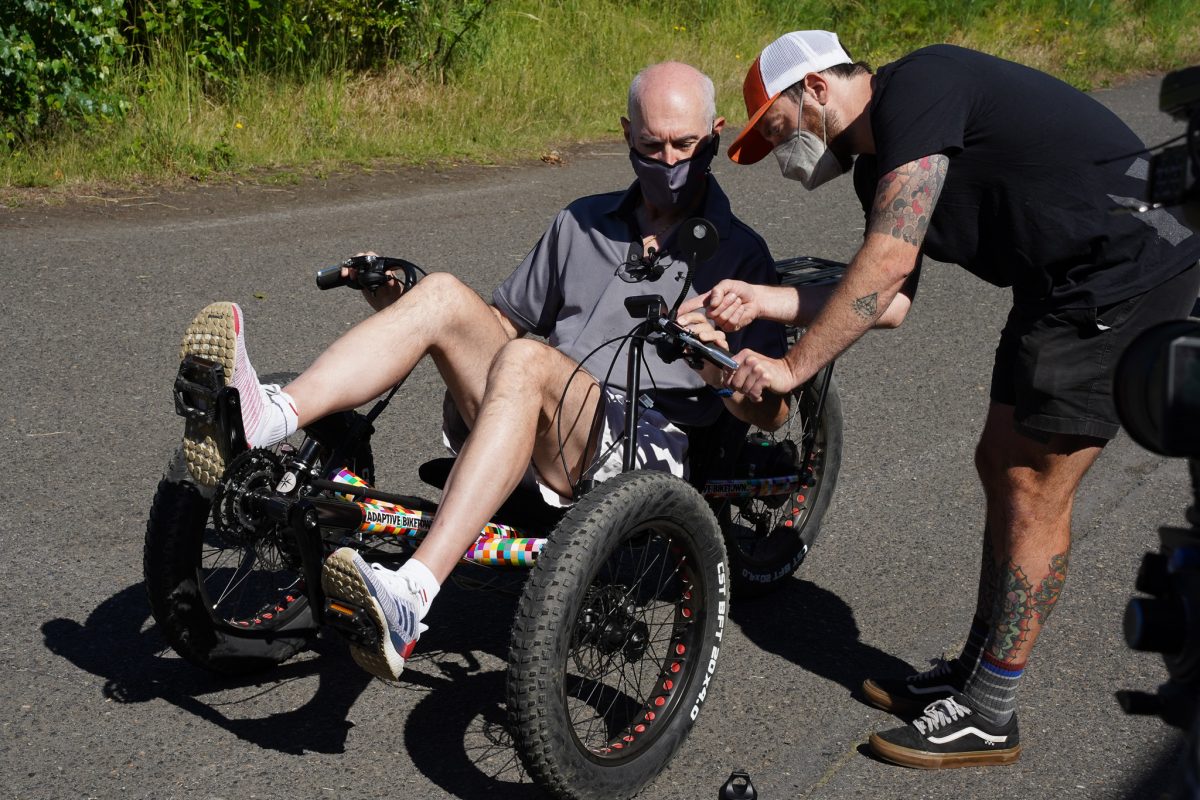
(Photos and video: J. Maus/BikePortland)
“The stability of having the two wheels in the back with a trike was really good for me.”
— Carol Clupny
The City of Portland is going all-in on adaptive cycling. “All” as in making cycling accessible to all Portlanders who want to give it a try. As we reported earlier this month, the transportation bureau has expanded their fleet of cycles available through the Adaptive Biketown program.
The move comes as the Portland Bureau of Transportation works to boost use of the program. After starting as a pilot with 10 vehicles in 2017, the program did well enough to become permanent in 2018. In 2019, PBOT says they had only 200 rides through the program and that number fell to less than half that during the pandemic year of 2020. Now there are 27 vehicles in the fleet and riders can choose from one of several types cycles. There are hand-powered, foot-powered, single-rider, electric-assist, tandems, and other options and accessories available.
The goal is to have something for nearly every type of need, whether it’s a movement disorder like Parkinson’s, Multiple Sclerosis, ALS, or Cerebral Palsy — or just a general discomfort or inability to manage a standard bicycle.
Advertisement




At an event to promote an upcoming Adaptive Cycling Resources Fair (which has unfortunately been postponed from June 26th due to concerns about extreme heat), PBOT fit people with Parkinson’s to some of their new four and three-wheeled cycles.
Carol Clupny has Parkinson’s and was able to step into and ride an adaptive trike. The bike had a large saddle with integrated back support, a low step-through frame design, and velcro foot straps to keep Clupny’s legs in place. “I’ve been used to riding a recumbent trike and it is a power-assist,” she shared after riding a loop on the Eastbank Esplanade near the Adaptive Biketown rental headquarters, “So I had to pedal a little bit harder and the turning is so different.” “But I could step across it,” she continued. “And the stability of having the two wheels in the back with a trike was really good for me. If I would spend more time with it I think I’m going to enjoy it a lot more.”
“The good thing about adaptive equipment is that, you may be at various stages of the disease in your progression, but you can still safely cycle.”
— Kristi South, Parkinson’s Resources of Oregon
Kristi South with Parkinson’s Resources of Oregon was also on hand to share about her group’s PeDal Support Program. She said cycling is a key part of Parkinson’s management. “One of the other issues with Parkinson’s patients is a rigidity of muscles and balance issues as well and so this specific movement of the consistent pedaling helps with these symptoms and it also kind of helps prolong the progression of the disease.” South said the adaptive cycles and accessories offered by PBOT are invaluable to her clients. “The good thing of course about adaptive equipment is that, you may be at various stages of the disease in your progression, but you can still safely cycle.”
If you or someone you know needs help to get riding, the month of July would be a perfect time to take advantage of Adaptive Biketown. Rides are free the entire month of July for seniors and people with movement disorders. Even if you haven’t been diagnosed with a specific movement disorder, PBOT says you should still inquire about using this program and fill out the reservation form to see if you qualify.
Learn more at AdaptiveBiketown.com/reservations and watch our video below to watch Carol Clupny ride the trike and hear Kirsti South share more about why cycling is so important to Parkinson’s treatment:

— Jonathan Maus: (503) 706-8804, @jonathan_maus on Twitter and jonathan@bikeportland.org
— Get our headlines delivered to your inbox.
— Support this independent community media outlet with a one-time contribution or monthly subscription.

